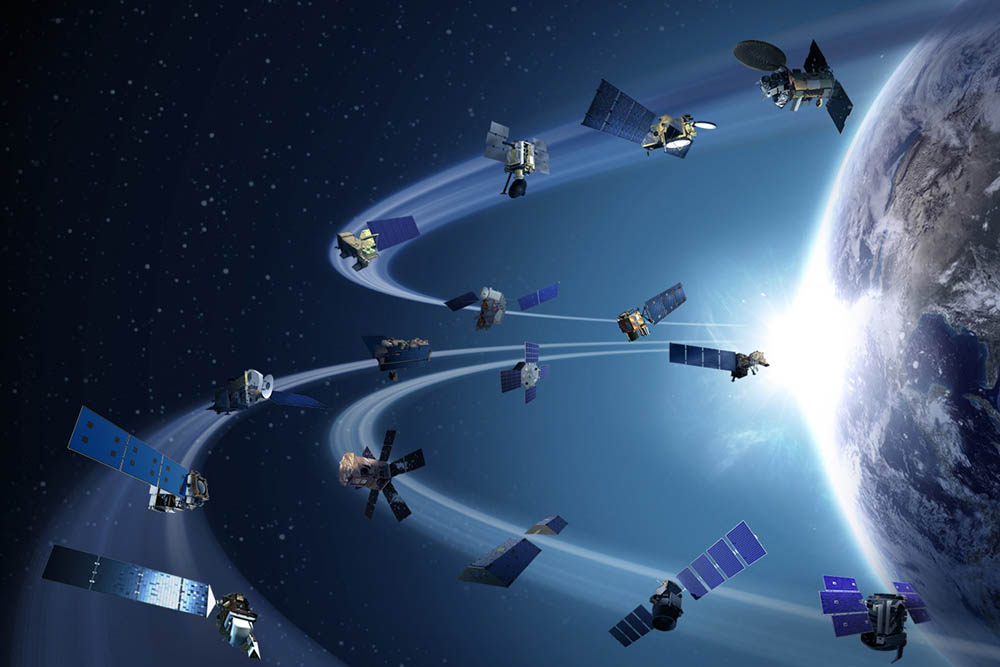Past and present multilateral space security-related processes including the 2022–2023 Open-Ended Working Group on reducing space threats through norms, rules and principles of responsible behaviours, and the ongoing Group of Governmental Experts on further practical measures for the prevention of an arms race in outer space have highlighted the importance of better understanding the characteristics of threats to space security and the feasibility of verification mechanisms for any future space security related agreement. To explore these issues UNIDIR and UNODA hosted a two-day virtual workshop to explore characteristics of space weapons and counterspace capabilities as well as effective verification mechanisms, through the application of different tools and processes.
Characterization (Day One)
In the first session of the Group of Governmental Experts, experts discussed a framework for characterizing weapons placed in outer space. Such a framework is intended to facilitate analysis of the relationship between threats, characteristics, definitions and verification of threats emanating from any vector. For example, one type of ground-to-space capability, namely direct-ascent anti-satellite missiles, can be characterized with reference to its category (“missile”), its vector (“direct-ascent”) and its target (“satellites”). The purpose of the first day of this two-day workshop was to discuss characterization of threats involving space systems with a particular focus on space-to-Earth and space-to-space vectors:
- What are the characteristics of threats to space systems?
- Are there dual-use or civilian satellites — or functions of dual-use or civilian satellites — with similar characteristics?
- What types of obligations (i.e. prohibitions, limitations, restrictions or other measures) can effectively mitigate threats posed by systems with characteristics identified pursuant to this analysis in a manner that could inform discussions on definitions and verification?
Verification and Monitoring (Day Two)
In the first session of the Group of Governmental Experts, verification was identified as particularly important in the context of the establishment of a legally binding international instrument on space security, including on the prevention of an arms race in outer space. However, to establish effective verification mechanisms, an understanding of how different verification tools work and can be used — particularly from a technical perspective— is needed. The purpose of the second day of this workshop was to explore possible verification approaches and tools that can be applied to obligations to effectively mitigate threats to space systems. The second day of the workshop sought to assess the following:
- What new and old technologies and tools could be applied individually or in combination to verify and monitor activities in outer space across different threat vectors?
- When can verification efforts be carried out to ensure their effectiveness? Before, during or after a space activity?
- Where can verification efforts be carried out to consider all threat vectors as well as all segments of space systems?
- How can technical, economic and political challenges be overcome to achieve a potential verification regime for space security?
Agenda
Day 1: Characterization (22 May 2024)
13:00 – 13:15 Opening and Introduction to the Characterization Framework
- Michael Spies, Senior Political Affairs Officer, UNODA
13:15 – 14:15 Moderated Expert Discussion
Expert presenters:
- Laura Grego, Senior Scientist and Research Director of the Global Security Program, Union of Concerned Scientists (with accompanying slides on Technical Aspects of Space Based Missile Defense and Space-to-Ground Weapons)
- Gilles Doucet, Space Security Consultant, Spectrum Space Security Inc.
- Daniel Porras, Corporate Counsel and Director of International, Government and Regulatory Affairs, Rogue Space Systems Corporation
- Laurent Gisel, Head of the Arms and Conduct of Hostilities Unit, Legal Division, International Committee of the Red Cross
Expert Discussants:
- Lieutenant-Colonel Luis Felipe Nohra, Head of the Satellite Control Division, Command of Aerospace Operations, Space Operations Center
- Toby Harris, Head of HEO UK
Moderator:
- Michael Spies, Senior Political Affairs Officer, UNODA
14:15 – 14:55 Open Roundtable Discussion and Q&A
14:55 – 15:00 Close of Day One
Day 2: Verification and monitoring (23 May 2024)
13:00 – 13:10 Introduction to Verification and Monitoring for Outer Space
- Almudena Azcárate Ortega, Researcher, UNIDIR
13:10 – 14:10 Moderated Expert Discussion
Expert Presenters:
- Franck Marchis, Co-Founder and Chief Scientific Officer, Unistellar (with accompanying slides on SETI/Unistellar Citizen Science Network: Toward a Decentralized Digital Telescope Network)
- Audrey Schaffer, Vice President of Strategy and Policy, Slingshot Aerospace (with accompanying slides on Characterizing Space Activities)
- Anirudh Sharma, Co-Founder and Chief Executive Officer of Digantara
- Joe Chan, Chairman and Executive Director, Space Data Association (with accompanying slides on the Space Data Association)
Expert Discussants:
- Laura Bartel, Space Security Expert, German Ministry of Defense
Moderator:
- Sarah Erickson, Research Assistant, UNIDIR
14:10 – 14:50 Open Roundtable Discussion and Q&A
14:50 – 15:00 Closing Remarks
- Bassem Hassan, Minister Plenipotentiary, Director, Department of Disarmament and Peaceful Uses of Nuclear Energy Ministry of Foreign Affairs, Egypt.
When and Where
22 and 23 May, 13:00 to 15:00 CEST, via the Zoom platform.
Target Audience
This workshop was primarily designed to foster an exchange between technical and governmental experts working in the field of space security, including members of the Group of Governmental Experts on Further Practical Measures for the Prevention of an Arms Race in Outer Space.
Outputs
UNIDIR will use insights drawn from the presentations and discussion among event participants in its research, including for the preparation of a Working Paper to be submitted to the Group of Governmental Experts on Group of Governmental Experts on Further Practical Measures for the Prevention of an Arms Race in Outer Space.
